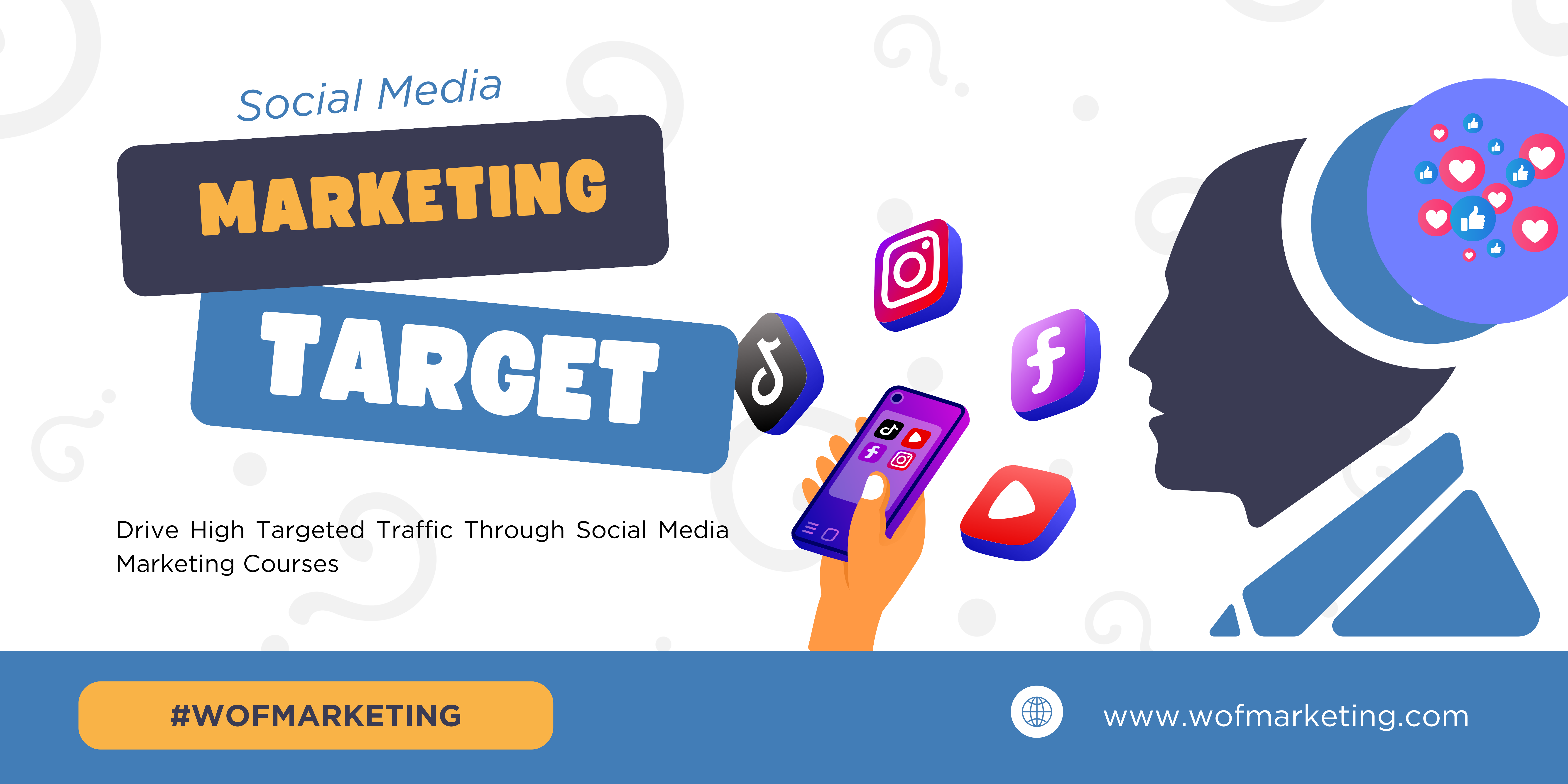Social Media Marketing: Unleashing the Power of Connectivity

In today’s digital age, social media marketing has become the cornerstone of a successful business strategy. Social Media Companies This powerful tool leverages the vast reach and influence of social platforms to connect with audiences, build brand awareness, and drive business growth.
Table of Contents
What is Social Media?
Social Media refers to online platforms and technologies that enable individuals and businesses to create, share, and exchange information, ideas, and content in virtual communities. It includes popular platforms like Facebook, Instagram, Twitter, LinkedIn, and more.
What is Social Media Marketing (SMM)?
Social Media Marketing: Unleashing Business Potential through Online Platforms
Social Media Marketing (SMM) is a comprehensive digital marketing strategy that harnesses the power of social media platforms to promote products, services, or brands. It involves creating and sharing content on various social media networks to achieve marketing and branding goals.
This multifaceted approach utilizes a combination of organic content creation, paid advertising, and strategic engagement with the online community.
Social Media Marketing: Primary Objectives
The primary objective of Social Media Marketing is to connect with a target audience, build brand awareness, drive website traffic, and ultimately achieve business objectives, including lead generation and sales.
SMM involves a variety of activities, such as crafting compelling content, running targeted ads, engaging with followers, and analyzing data to optimize strategies. The dynamic nature of social media platforms allows businesses to reach a global audience and interact with potential customers in real-time.
In essence, Social Media Marketing is a powerful tool that not only facilitates brand promotion but also enables businesses to establish meaningful connections with their audience, fostering customer loyalty and contributing to overall business success.
What is the job of Social Media companies?
The primary job of social media companies is to provide online platforms and services that enable users to create, share, and interact with content.
These companies facilitate the connection and communication between individuals, businesses, and communities in a virtual space. Social media platforms serve as digital spaces for users to express themselves, stay informed, and engage with diverse content.
Additionally, social media companies often generate revenue through advertising and data monetization, leveraging user data to tailor content and advertisements based on individual preferences and behaviours. Their overarching goal is to foster connectivity and user engagement within their platforms while sustaining a viable business model.
Social Media Marketing: The Global Impact Stats
Digital connectivity, the statistics surrounding social media in 2023 paint a vivid picture of its profound impact on a global scale.
4.9 Billion People: A Global Digital Community
The fact that an estimated 4.9 billion people will engage with social media platforms worldwide in 2023 underscores the unprecedented reach and influence of these online networks. This massive digital community transcends borders, bringing individuals from diverse cultures and backgrounds together in a virtual space where ideas, information, and experiences are shared seamlessly [1].
$49.09 Billion Valuation: Economics of Connectivity
The valuation of the social media app market at $49.09 billion in 2022 highlights the economic significance of these platforms. Beyond being spaces for social interaction, social media has become a thriving marketplace where businesses and brands capitalize on the attention and engagement of millions. This valuation reflects the immense economic potential and opportunities embedded in the digital realm of social media [1].
Continual Growth: Anticipating 257 Million Users
The projection that social media users worldwide will reach 257 million by the end of 2023 signifies the ongoing expansion of digital communities. This continual growth reaffirms the integral role social media plays in shaping how individuals communicate, consume content and engage with the broader online world. It’s not just a trend; it’s a testament to the enduring relevance of these platforms [3].
Global Connectivity: 4.8 Billion Users Unite
With 4.8 billion social media users globally, representing 59.9% of the global population and 92.7% of all internet users, the significance of these platforms cannot be overstated. They serve as virtual bridges connecting people on an unprecedented scale, transcending geographical boundaries and fostering a sense of a truly interconnected world [5].
Projected Ad Spending: Investing in Digital Narratives
The projection that ad spending on social media will exceed $268 billion in 2023 underscores the confidence and investment brands place in these platforms. Social media advertising has evolved into a cornerstone of digital marketing strategies, offering targeted reach and unprecedented opportunities for brands to engage with their audience. This substantial investment signifies the acknowledgement of social media as a pivotal player in the advertising landscape [6].
What Makes Social Media Marketing (SMM) More Powerful?
Connection: Breaking Barriers and Expanding Horizons
Social Media Marketing (SMM) thrives on its unique ability to forge connections between businesses and customers, transcending previous limitations. The expansive reach of social media provides businesses with a diverse array of channels, including content-rich platforms like YouTube.
Social hubs like Facebook and microblogging services like the X platform.
Leveraging diverse avenues transforms how businesses connect with audiences, fostering previously deemed unattainable engagement levels and reshaping fundamental interactions.
Interaction: Dynamic Engagement and Free Advertising Opportunities
The dynamic interactions, whether through direct communication or passive liking, present unique advertising prospects, unlocking doors to impactful engagement strategies.
Electronic word-of-mouth (eWOM) recommendations circulating among existing and potential customers create a positive contagion effect, influencing consumer decisions.
System interactions on the social network enable businesses to quantify social equity, a vital metric for evaluating ROI in campaigns.
Customer Data: Transforming Information into Strategic Gold
A crafted social media marketing plan is a treasure trove of customer data, providing a strategic edge in the digital realm.
Rather than being overwhelmed by big data—volume, variety, and velocity—SMM tools extract customer data and convert it into actionable market analysis.
Furthermore, this treasure trove of data opens avenues for businesses to crowdsource innovative strategies, creating a dynamic feedback loop that propels marketing outcomes to new heights.
Demystifying the Mechanisms of Social Media Marketing (SMM)

Unveiling the Mechanics of Social Media Marketing (SMM)
Social Media Marketing (SMM) operates through a multifaceted approach, leveraging the dynamic nature of social media platforms to achieve marketing objectives.
It involves the strategic use of various channels and tools to connect with the target audience, build brand awareness, and drive engagement. The core workings of SMM can be dissected into several key components:
Platform Selection and Presence
Choosing the right social media platforms is crucial. SMM begins by establishing a presence on platforms that align with the target audience. This includes crafting compelling profiles and optimizing content for each chosen platform.
Content Creation and Sharing
Content lies at the heart of SMM. The creation of engaging and relevant content is essential to capture the audience’s attention. Sharing this content strategically across social media channels enhances visibility and encourages audience interaction.
Audience Engagement and Interaction
Active engagement with the audience is a fundamental aspect. Responding to comments and and messages, and participating in discussions foster a sense of community. This interaction builds trust and strengthens the brand’s relationship with its audience.
Advertising and Promotions
Paid advertising plays a significant role in SMM. Platforms offer targeted advertising options to reach specific demographics. This includes sponsored posts, paid campaigns, and other promotional activities.
Monitoring and Analytics
Continuous monitoring of social media activities and analyzing performance metrics are integral. Insights gained from analytics help refine strategies, identify trends, and measure the effectiveness of campaigns.
Adaptation and Optimization
SMM is dynamic, requiring adaptability. Regularly optimizing strategies based on changing algorithms, audience behaviour, and emerging trends ensures continued success in the ever-evolving landscape of social media.
Understanding how these components intertwine allows businesses to harness the full potential of SMM, driving impactful and measurable results.
Advantages and Disadvantages of Social Media Marketing (SMM)

| Advantages | Disadvantages |
|---|---|
| – Increased Brand Awareness: Social media marketing provides a potent channel for reaching and engaging a vast audience, enhancing brand recognition. | – Time-Consuming Setup and Maintenance: Building a robust social media presence demands time and consistent effort. |
| Platform Complexity: Effective SMM requires a deep understanding of multiple platforms, each with its nuances and requirements. | Algorithm and Policy Changes: Social media platforms frequently change algorithms and policies, posing challenges to predictability and maintaining success. |
| – Cost-Effective Option: Compared to traditional advertising, SMM is often a more affordable choice, making it attractive for smaller or startup businesses. | ROI Measurement Challenges: Understanding the return on investment in social media marketing can be complex, involving tracking multiple metrics and making assumptions about consumer behaviour. |
| – Increased Website Traffic: Sharing links on social media can drive more traffic to a website, increasing the likelihood of conversions. | – Public Complaints and Reputational Risk: While offering a communication channel, social media can also become a public forum for customer complaints, potentially damaging a company’s reputation if mishandled. |
| – Real-Time Feedback: Social media enables instant interaction and simplicity in communication, allowing businesses to gather feedback in real-time. | – ROI Measurement Challenges: Understanding the return on investment in social media marketing can be complex, involving tracking multiple metrics and making assumptions about consumer behavior. |
| – Broad Yet Targeted Reach: Social media helps businesses reach a wide audience through shares, likes, and comments, while also offering targeted options for personalized content delivery. | – Uncertain ROI: Determining the true ROI of social media marketing may be challenging due to the need to analyze complex data sets and make assumptions about consumer actions. |
Four Areas of Social Media Marketing
- Social Listening
- Social Influencing
- Social Networking
- Social Selling
Social Listening: Understanding Your Audience
One integral aspect of Social Media Marketing is social listening. This involves monitoring online conversations, understanding what your audience is saying about your brand, and gaining insights into their preferences and behaviors.
By actively engaging in social listening, businesses can tailor their content and strategies to meet the needs and expectations of their target audience. Learn more about Social Listening here.
Testimonial :
“Social listening transformed my business. By tuning into my customers’ conversations, I discovered their pain points and preferences, allowing me to adjust my strategies and offerings to better serve them.” –
Jane Doe,
CEO of Trendy Apparel.
Social Influencing: Building Brand Authority

Social influencing revolves around establishing and nurturing relationships with influencers and thought leaders within your industry. These influencers can help amplify your brand message to a broader audience, fostering trust and credibility.
Crafting engaging and shareable content is key to becoming an influencer in your niche. Learn more about Social Influencing here.
Social Networking: Connecting for Success
Social networking involves actively participating and engaging with your audience on social platforms. Building a strong network fosters a sense of community around your brand, encouraging loyalty and repeat business.
Encourage user-generated content, respond to comments, and actively participate in relevant discussions. Learn more about Digital Marketing Companies here.
Social Selling: Turning Engagement into Sales
The ultimate goal of Social Media Marketing is often to drive sales. Social selling involves leveraging social platforms to identify and connect with potential customers, nurturing relationships, and converting leads into sales.
Share compelling product stories, offer exclusive promotions, and create a seamless shopping experience on social platforms. Learn more about Social Selling here.
Learn More: Social Listening
Discover how to fine-tune your strategies by actively listening to your audience. Harness the power of insights for better business decisions.
Click here to Learn More about Social Listening
Learn More: Social Influencing
Unlock the secrets to building your brand’s authority by partnering with influencers and thought leaders. Elevate your business to new heights.
Click here to Learn More about Social Influencing
Learn More: Social Networking
Master the art of building a strong social network. Engage with your audience and create a community that propels your brand to success.
Click here to Learn More about Social Networking
Learn More: Digital Marketing Social Selling Stuff Online
Transform social engagement into sales. Explore strategies to identify, connect, and convert leads into loyal customers.
Click here to Learn More about Social Selling
FAQ‘s:
1. What Constitutes Sticky Content in Social Media Marketing? Sticky content, within the marketing landscape, represents visually appealing and captivating content designed not only to attract customers instantly but also to influence them to make purchases and actively share the content.
2. How is Viral Marketing Defined in Social Media Marketing? Viral marketing stands as a strategic approach in SMM, aiming to rapidly disseminate word-of-mouth product information. This cost-effective strategy relies on social sharing to boost sales and enhance brand visibility.
3. Defining Earned Media in Social Media Marketing: What Does It Encompass? Earned media, a term within marketing, encompasses brand exposure achieved through methods other than paid advertising. This includes customer-generated content like product reviews, recommendations, shares, reposts, and mentions.
4. Can You Share Examples of Social Media Marketing Strategies? Social media marketing deploys various strategies, such as targeted advertising, interactive chatbots, personalized customer experiences, influencer collaborations, and audience building, to effectively engage users and promote products and services.
5. How Does One Initiate a Career in Social Media Marketing? Embarking on a social media marketing career often involves obtaining at least a bachelor’s degree in marketing or a related field. Acquiring a solid understanding of digital marketing campaigns on platforms like Facebook, X, and Instagram is crucial. Showcase your skills by creating compelling content and gleaning insights from industry influencers to build a personal brand for self-promotion.
6. What Summarizes the Essence of Social Media Marketing (SMM)? Social Media Marketing (SMM) involves leveraging social media platforms to engage with customers, build brands, increase sales, and drive website traffic. With the global surge in social media usage across computers and mobile devices, the competition for views and clicks intensifies, making the ability to drive sales from specific user populations a thriving business.
In conclusion, Social Media Marketing is a dynamic and essential component of a modern business strategy. From social listening to social selling, each facet plays a crucial role in unlocking the full potential of connectivity. By harnessing these tools and strategies, businesses can not only expand their reach but also build lasting relationships with their audience, ultimately leading to sustained growth.



